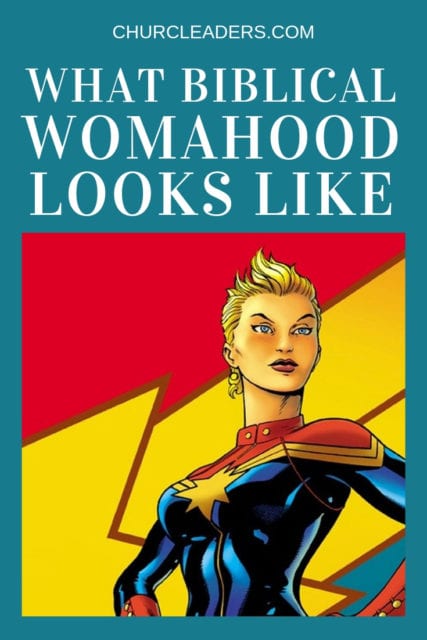This film is not lobbying for drafting or conscripting our daughters to be maimed or die in war. At least, not any more than Spider-Man is pressing for the recruiting 15-year-old boys to enter violent conflict with villains.
Second, this film models positive aspects of biblical womanhood. In Carol Danvers, we find echoes of many positive, heroic and biblical women.
Eve
Eve is hated by the serpent (and the serpent’s offspring) because of what shall come forth from her. Enemies hate Carol Danvers because of what is within her. The seed of the woman is foretold to crush the head of the serpent. The Avengers, birthed by this woman, will save the world (or so we hope!).
Women Redeemers
But what about a woman delivering people—even when it means they go to war? There are noteworthy situations in the Bible when women enter the scene to bring deliverance—some when men would not, and some when men could not, and some when women take up weapons and deliver death blows.
Deborah and Jael
The stories of Deborah and Jael are examples of when the men would not. In Judges 4, Deborah the prophetess is provided by the Lord to judge Israel. She reminds Barak that the Lord had commanded him to go and take their enemy Sisera. The Lord promised to deliver the enemy into his hand. But Barak would not go, not without Deborah accompanying him. She agrees, but now with the promise that the Lord would not deliver Sisera into in his hand, but into the hand of a woman. That woman is Jael, who offers Sisera refuge in her tent, lulls him to sleep with warm milk, and drives a tent peg through his skull. In this instance, the cowardly heart of Barak—a man who would not—is the backdrop to the shrewd courage and violent strength of a woman of God.
God provides shrewd, courageous and strong women to act—particularly when no man will. Though such is not the backdrop of Captain Marvel, we do see echoes of Deborah’s leadership and Jael’s shrewd courage in Carol Danvers—a good example, which ought to inspire Christian women (and men!) today.
Esther
The story of Esther most closely resembles Captain Marvel, an example of when men could not. The heroine Esther finds herself, along with her Jewish people, living in exile under Persian rule. Providence exalted her to the position of queen, even as her uncle discovers a plot to “to destroy, to kill and to annihilate all Jews, young and old, women and children, in one day.” Encouraged by Mordecai to consider whether she has “come to the kingdom for such a time as this,” she determines to plead with the king to save her people. At risk to her own life, she puts the needs of others ahead of her own, and risks death to approach the king.
In Captain Marvel, there is no one else—man or woman—positioned to act. Carol Danvers is uniquely and providentially situated to save an exiled people facing genocidal extinction. So, she walks into danger to save them.
The Church
The church is a “she,” and she is a warrior.
The church is the Bride of the King. To see her is to behold your queen.
Who is it that Paul commands to put on armor and take up a sword to oppose the devil? The Bride of Christ.
Under whose feet will the God of peace soon crush Satan? The Bride of Christ.
Who shall reign forever with the King of Kings and Lord of Lords? The Bride of Christ.
She is a warrior, dressed for battle, crushing the head of a dragon beneath her feet as she rules with her husband, the King.


